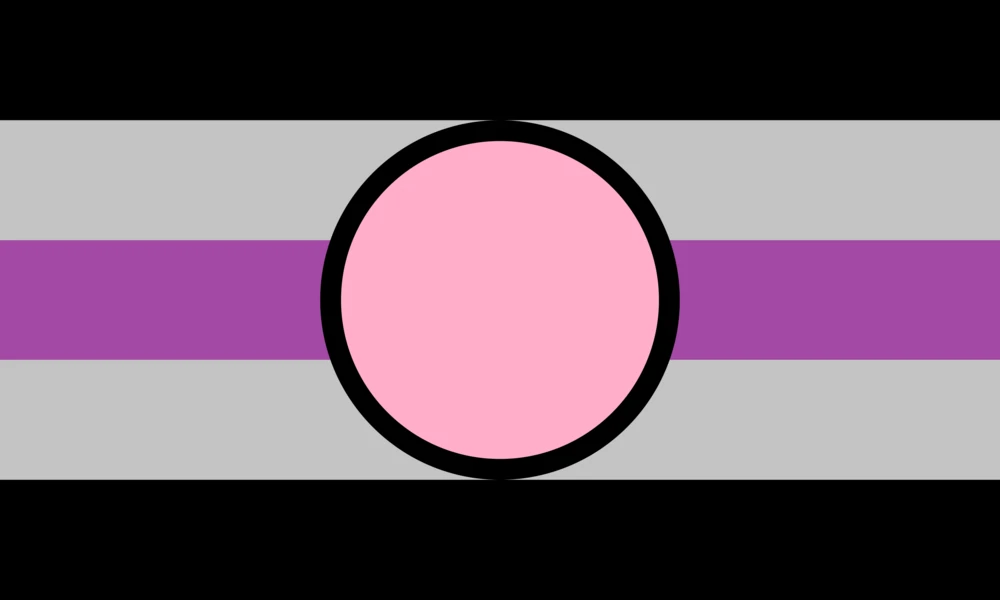
The grey and purple stripes originally denote a lack of interest in humans,
while the circle represents a portal to another world, and the pink color represents love.
Fictosexuality and fictoromanticism refers to a group of sexual identity labels that were originally created to denote exclusive or primary attraction to fictional characters.
Fictosexuals experience romantic love for fictional characters that is just as (if not more) intense than the feelings that one may have for another person.

The grey and purple stripes originally denote a lack of interest in humans,
while the circle
represents a portal to another world, and the pink color represents love.
While originally created as an asexual sublabel for use only by those who are not attracted to humans, the term's use has since broadened to encompass a wide group of people with common experiences. The first recorded use of the word 'fictosexual' was in a 2011 Vice News article, but the term was most likely used by a small group of people before then.
A term that could be considered the precursor to 'fictosexual,' 2D love is a term originating in Japan that denotes intense and long-lasting feelings for fictional characters. 2D lovers and fictosexuals have some key experiences in common, but 2D love does not necessarily imply asexuality towards humans or even primary attraction to fictional characters. Someone might call themselves 2DL because they don't identify as ficto, prefer not to label their sexuality, or simply prefer the way it sounds.
The history of this term is hard to pin down — no one knows exactly when it started being used, but it did see a significant spike in Western media coverage around 2009.
You should describe yourself in whatever ways make you feel most comfortable! There is no 'right' or 'wrong' way to be fictosexual or 2DL — whether you have one 2D partner or fifty, whether you are attracted to humans or not, and regardless of your existing sexuality and gender labels. Fictosexual.neocities.org maintains a position of neutrality regarding the 'true' meanings of these labels — while it is important to acknowledge that there is debate, this site does not aim to call into question any person's own experiences with their identity.